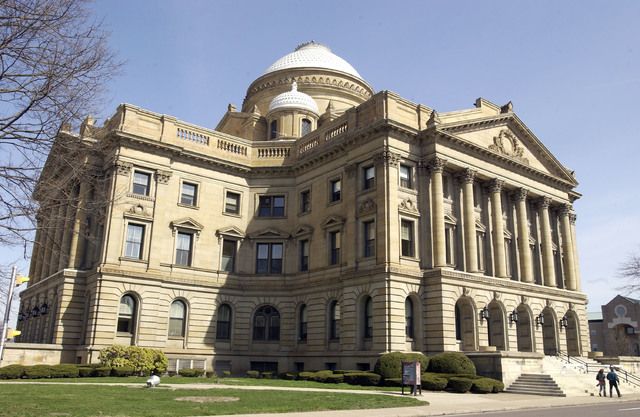Click here to subscribe today or Login.
From the looks of his first budget proposal as Luzerne County manager, C. David Pedri doesn’t aim to soon win any popularity contests.
His financial blueprint for the county in 2017 calls for a 4 percent increase in property taxes.
Beyond that, the plan he released to county council’s 11 members last week for their consideration would impose a new $5 fee on vehicles registered in the county. And it would permanently nix a homestead tax break that, in years prior to 2015, had allowed certain residents to save $45 to $57 on county real estate taxes for their primary residences.
If you dislike this $136 million draft budget – and certainly lots of people will question its numbers, if not the strategy behind them – speak up soon. But please do so respectfully and with a full understanding of the facts.
Luzerne County continues to cope with more than $350 million in debt from borrowing authorized by elected commissioners in the years before county voters approved a switch to the home rule form of government. Repaying that whopping debt eats up a sizable 20 percent of the county’s budget each year. Consequently, for Pedri and others trying to keep county operations afloat and effective, there are few good options. (Even fewer if trying to appeal to the masses.)
Pedri acknowledges his 2017 proposal likely will be reworked. “I absolutely see this budget as a work in progress and look forward to working with council to get the best plan for Luzerne County,” he said.
County council has until Dec. 15 to pass a final budget.
Area residents can weigh in regarding the plan during public hearings set for 6 p.m. Nov. 1 and Dec. 6 at the county courthouse on River Street in Wilkes-Barre. Copies of the budget, including proposed new positions, are available at www.luzernecounty.org.
Among the many issues to consider:
• Pedri’s budget proposes 18 new positions, including a maintenance worker at the prison. Reductions in staffing across the county since home rule went into effect have been “too deep” in some areas, he said.
Certain people will argue the county remains overstaffed. Yet more than 200 positions were eliminated since 2009, reducing the annual expense for salaries and benefits from about 60 percent of the budget to 50 percent, according to a 2015 report.
What’s the “right” number of staffers? How is efficiency measured?
• Thirteen of Pennsylvania’s 67 counties reportedly have enacted a vehicle registration fee since the state made the option available in 2013. Revenues go toward road and bridge maintenance.
Does it make sense for road users to pick up more of the tab for repairs? Or is this fee another way to nickel-and-dime people?
• A 4 percent property tax hike translates into $23 more per year for a property assessed at $100,000. Is that reasonable?
Or has the county gone to this well one too many times, unfairly straining certain homeowners? If so, what’s the alternative?
Don’t blame Pedri for the county’s predicament. Who knows? One day when Luzerne County emerges from debt, he might be hailed as a hero for steering the county through difficult times.
Regardless, let’s agree to be civil – and sensible – when debating how to keep county government running at a level that gets the job done.





